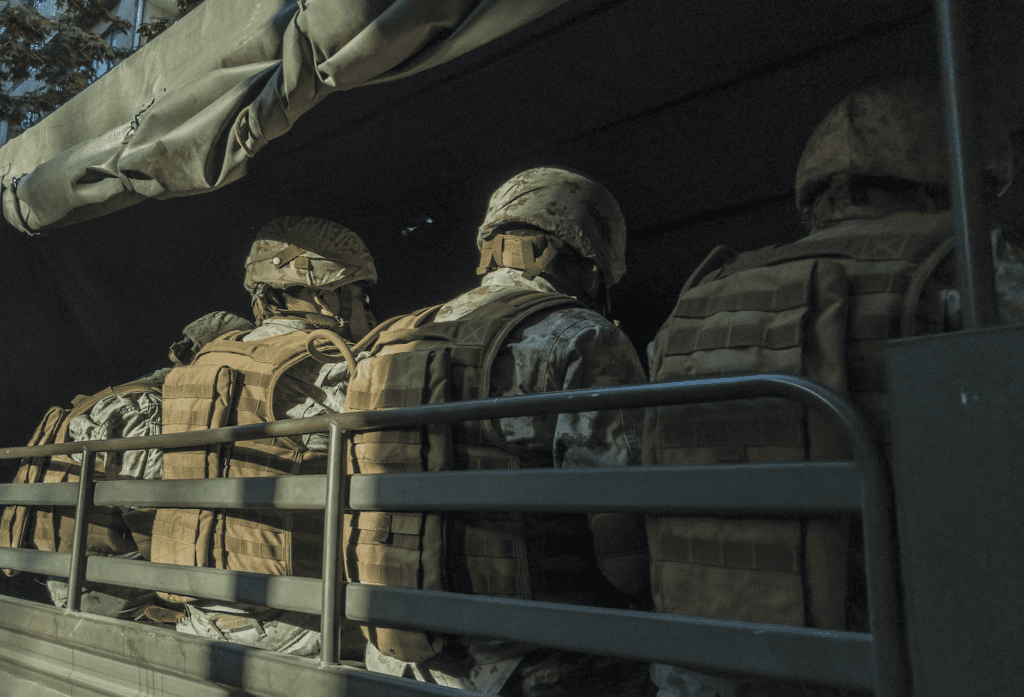
North Carolina’s Camp Lejeune was established in 1942 to train military servicemen. This US Marine Corps Base occupied over 153,000 acres of land, including 14 miles of beach along the coast of the Atlantic.
Gradually, what was meant to be a promising military support center became the location for the worst-ever water contamination crisis in US history. In 1982, the US Navy discovered that three water supply tanks at the Base – Holcomb Boulevard, Tarawa Terrace, and Hadnot Point – had volatile organic compounds (VOCs) in them.
It was not until three years later (in 1985) that these contaminated wells were shut down. From 1953 to 1987, veterans stationed at the Base (and civilians) had unknowingly consumed the Camp’s toxic waters. At least one million people were affected and later sustained life-threatening injuries.
In this article, we will discuss the Marines’ plight, the US government’s responsibility in the matter, and the struggle for justice.
Healthcare Support Sans Legal Justice
According to TorHoerman Law, victims of Camp Lejeune suffered from injuries like Parkinson’s disease, different types of cancer, infertility issues, neural tube defects, etc. What’s more, is that many have sustained more than one injury from this list.
At the time cases of this incident emerged, no immediate relief was available for the victims. However, the Obama administration offered free healthcare in 2012. For 10 more years, veterans and their families had no other compensation except for VA medical care.
Finally, President Joe Biden officially passed the Camp Lejeune Justice Act (CLJA) in August 2022. This was a giant leap on the road to justice because the government was responsible for negligence but had not surrendered its sovereign immunity.
The CLJA turned the tables in the victims’ favor as the government not only dropped its immunity but also negated the Feres doctrine. According to this doctrine, exclusively military servicemen had no right to sue the government for any personal injuries.
The only catch was that a lawsuit could not be filed directly. Victims could first file administrative claims with the Navy Judge Advocate General (JAG). If no resolution was made until six months after filing, the claimant could file a lawsuit.
Navy’s Tactics to Avoid Fair Compensation
Besides securing the hopes of legal justice, the CLJA kept the filing window or statute of limitations open for two years from the date of passing. This meant that veterans had time till August 2024 to file a claim.
In the initial months after the Bill was passed, it seemed like all hopes were gradually dwindling. The Navy JAG was trying every trick up its sleeve to avoid dishing out fair settlement amounts.
No claims were made for over six months, and many claims were turning into lawsuits. When enquired, the Navy’s attorney, Jennifer Tennile Karnes, claimed that it was struggling from staffing and funding shortages. She stated that the tort claims unit was already working overtime to carefully scrutinize each claim’s details and check its validity. Apart from that, the Navy failed to set up the online portal promised to veterans to expedite the claims filing and resolution process. Plaintiffs’ attorneys considered these to be the Navy’s clever tactics to waste time and avoid fair payouts. They were concerned that the current snail’s pace would leave them at square one.
The Elective Option or Early Settlement Program
To pacify growing veteran displeasure due to resolution delays, the Navy offered an easy way out in September 2023. The elective option or early settlement program was meant to settle certain cases more quickly than others (without trial hassles).
This option was presented as an attractive one for severely ill claimants or those well advanced in age. By this time, several claimants had already succumbed to their injuries or met their fate due to natural causes.
In closer review, the elective option divided all Camp Lejeune cases into two tiers – 1 and 2. Each tier had particular injuries for which a victim could demand early settlement. However, the amount depended upon the period the victim had spent on the Base.
For instance – if somebody suffered from kidney cancer and was stationed at Camp Lejeune for up to a year, they would receive $150,000. However, if someone else (with the same injury) spent over five years on the Base, they would be eligible for $450,000.This system was unfair to a majority of claimants. Think about it – if someone sustained more advanced-stage cancer or other injuries, they would still be eligible for a lower amount due to spending less time at the Camp.
This option only made sense in cases where establishing a direct connection between the Camp’s waters and the victim’s injuries was challenging. Yet again, it seemed like the Navy was unwilling to offer fair settlements.
Disqualification for Early Resolution
Currently, the Navy has made six claim settlements via the early settlement program, amounting to a total of $2 million. This may sound like good news but there’s another roadblock (or perhaps two) on the way still.
Bloomberg said in a recent report that around 85% of the claims will not qualify for the elective option. In other words, these will be disputed and end up in court. The tragic part is that most of the plaintiffs (belonging to the 85%) are sick and elderly. They do not have many years ahead of them to stand for trial.
Up until now, only 52 early resolution offers and 28 other cases seem to meet the criteria for the elective option. There are over 153,000 claims and thousands of lawsuits pending. Not only that but it is expected that new claims will be filed till the statute of limitations is up.
This early resolution disqualification has come as another blow to plaintiffs’ hope for justice. Moreover, the government has argued that the CLJA makes no room for jury trials. However, plaintiff attorneys are claiming that this is untrue since Camp Lejeune victims are allowed to seek jury trials.
In closing, it may seem like the Marines are losing the legal battle. The government is striking them right, left, and center with excuses or regrets. However, a recent case management order revealed that the first-ever Bellwether trials for this litigation will take place in early 2024.
The time is drawing near for the plaintiff’s counsel to give their best. The trials will take up the rest of the year. The only hope is that this litigation (the largest mass tort in US history) is not delayed further and victims are served their due justice.

